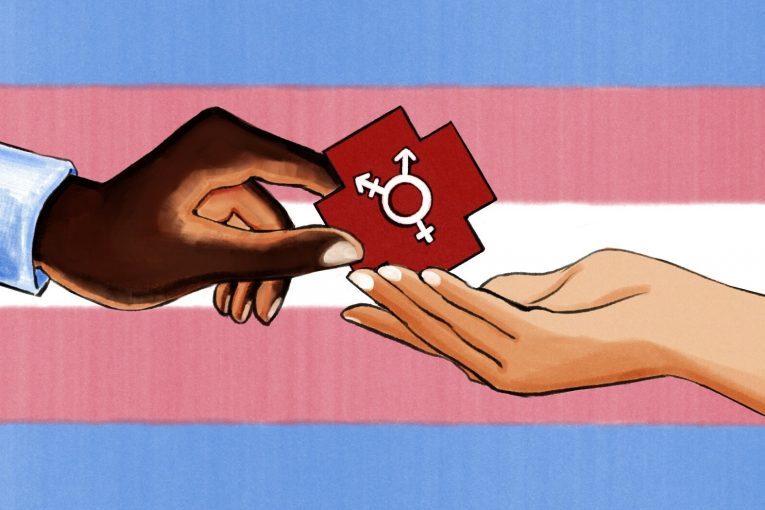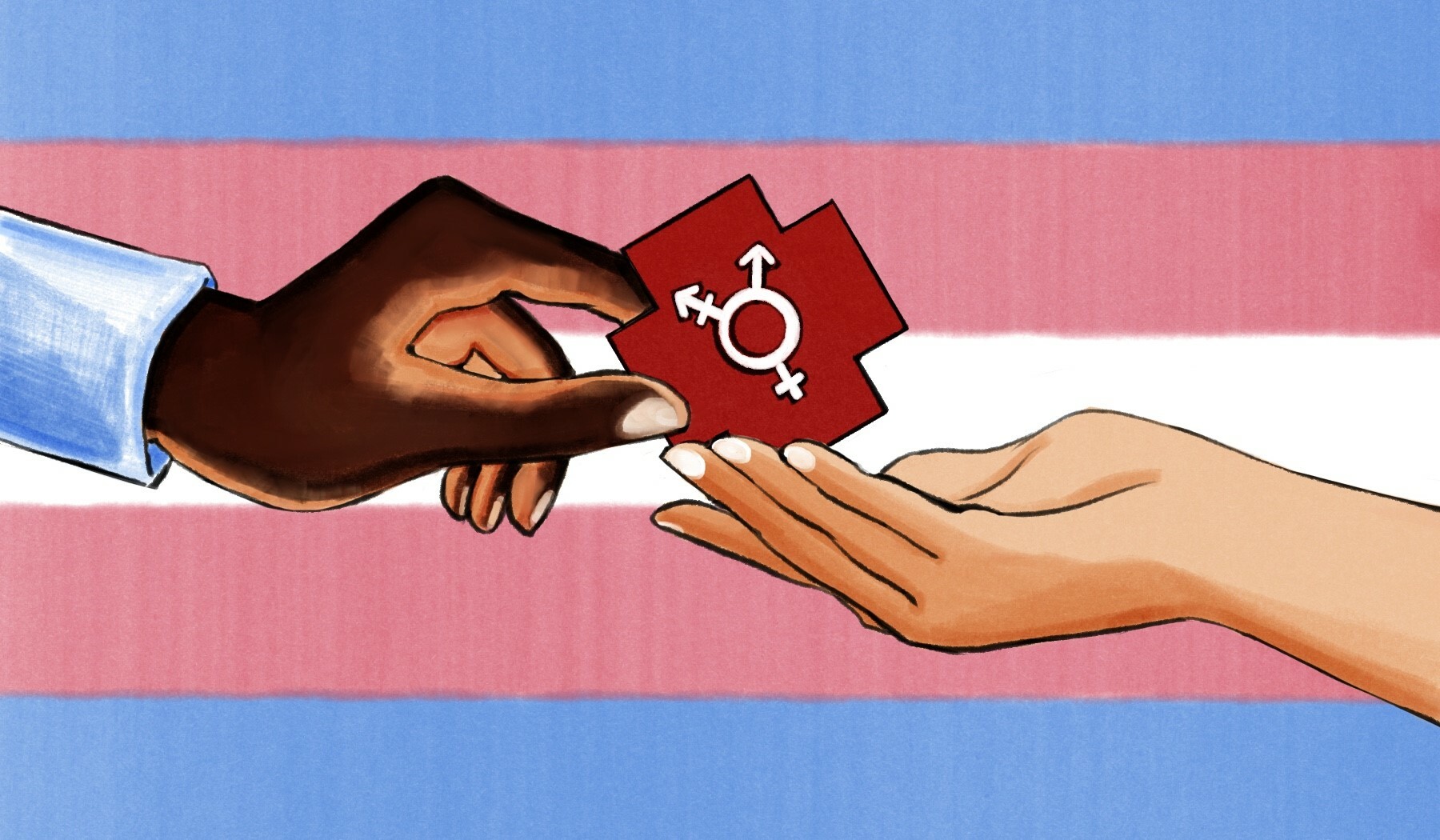

Transgender people who have experienced prison call for more humane conditions and treatment.
Nearly one in six transgender people report experiencing jail or prison at some point during their lives. For Black transgender people, the rate is nearly one in two. Once incarcerated, transgender people often experience assault and face isolation or solitary confinement. Too often, their voices go unheard.
This essay was originally published by the Vera Institute of Justice. The Vera Institute of Justice interviewed five transgender people who survived incarceration and asked them to share their stories. We have broken this out into five parts.
Part Three – Teah (they/them/theirs)
I graduated from high school in 1979 and went to prison on August 11 of that same year. I did 26 years. We have to allow people like myself, who have spent lots of years in prison, to get behind those walls and advocate for the people who are still there.
When I went in, there were only three girls in there: me, April, and Miss Jeanne. We were good cooks and good people, and we could sew and stuff. The prison was kind of  fascinated with us because they had never seen guys that acted like girls in a men’s prison. We kind of kicked the doors down for the girls that ended up coming after us.
fascinated with us because they had never seen guys that acted like girls in a men’s prison. We kind of kicked the doors down for the girls that ended up coming after us.
In prison, we had boyfriends and lived a normal prison life. I was in the kitchen; I cooked. The boys looked at us as their mothers and their sisters. A lot of them were mama’s boys anyway, and they were looking to us as mother figures. Hormones were not a thing back then. Transitioning wasn’t something that was talked about, and you don’t know what you don’t know. I was comfortable in my skin. Hormones weren’t the talk of the town or part of the conversation back in the 1970s, 1980s, or 1990s. We dolled ourselves up to look the way we wanted to look with the shit that they gave us.
There was no counseling. That wasn’t a thing back then. You just came in as one of the girls. When more girls started coming in, in the 1980s and the 1990s, we were already established. We took them under our wings and tried to show them the way. We didn’t have counseling, but when the newer girls came in, we welcomed them.
When I got out in 2005, things were different. It inspired me; we weren’t even thinking about things like hormones and surgeries when I went in. I am in recovery—13 years clean. I work in the harm reduction field where I share my story. I know there is somebody who suffered after being molested as a child, as I was. Back then, we didn’t talk about shit like that. If somebody can identify with a little piece of what I said, then I am grateful I can share my story. If someone out there is going through it as we speak, they can see that they can get out on the other side of it.
My goal is to live life the best way I can; to have fun with my girls and my LGBTQ+ people. I am comfortable in my skin. I have old-school parents and they are okay with me being me. I want to remain an outspoken member of the LGBTQ+ community, the transgender community; all communities that love free expression. The freedom comes from knowing who we are, and who we have become, and who we feel comfortable being. I don’t have to hide.
I like to shake branches. I know people still behind those walls, and I can advocate for people who don’t have that voice, that volume. I want to sit at the table. I want to be in the room when decisions are made that have anything to do with me and my community of people. I am tired of sitting in the other room waiting for the answer. I want there to be an empty chair for me, and the person experiencing addiction, and the transgender girl or guy. We should be sitting with the deputy director of the prison system. When you have transgender people walking through that door, you need to look at each and every situation. There are health issues that need to be addressed. We need more advocates to break down the barriers. They have got to know that we are not going to stop.
I write letters to people behind the wall. I try to be supportive on the phone and include them in Black and Pink National meetings. I try to get them the right books and magazines. We help out when there is an issue with mail. I know how the prison system moves. They are not big on transgender rights because they are not big on human rights.
It’s not okay to do nothing for the LGBTQ+ community. The LGBTQ+ community has been so unheard for so long. Now that we have social media, it is a leg up for us. It lets us get our message out, our energy out.
We have to partner with people and make connections so our community of people can come back from prison and be productive members of society. How are you going to incarcerate someone and let them out with no money? If you don’t have a plan after you get out of prison, you are going to be subjected to recidivism. We have to take care of ourselves.
It took African Americans so many years to get to the place we are at now. We have had a Black president, a Black vice president—but look how long it took. This is 2024—an election year—and we have to get more involved and advocate in this voting process. Progress has been made, just not fast enough.
